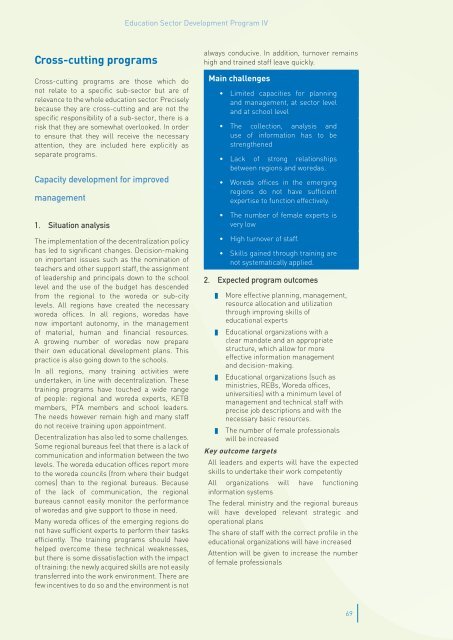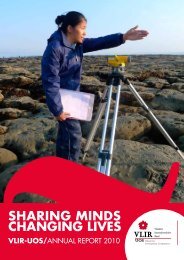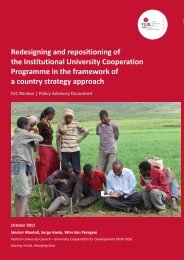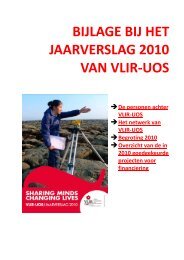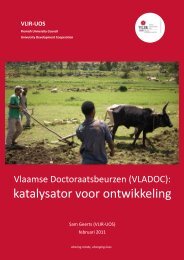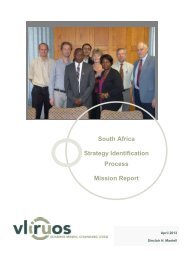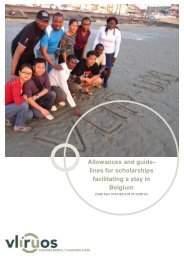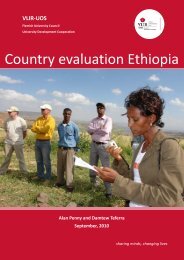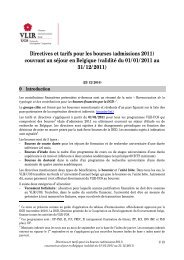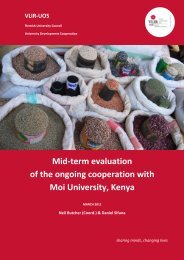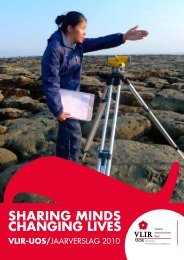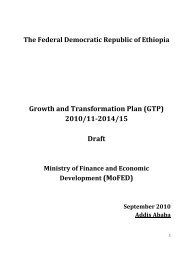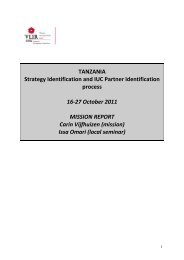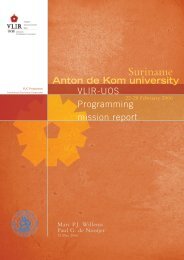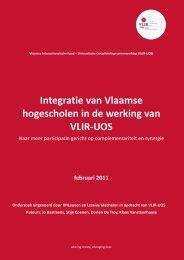Education Sector Development Program - VLIR-UOS
Education Sector Development Program - VLIR-UOS
Education Sector Development Program - VLIR-UOS
You also want an ePaper? Increase the reach of your titles
YUMPU automatically turns print PDFs into web optimized ePapers that Google loves.
<strong>Education</strong> <strong>Sector</strong> <strong>Development</strong> <strong>Program</strong> IV<br />
Cross-cutting programs<br />
Cross-cutting programs are those which do<br />
not relate to a specific sub-sector but are of<br />
relevance to the whole education sector. Precisely<br />
because they are cross-cutting and are not the<br />
specific responsibility of a sub-sector, there is a<br />
risk that they are somewhat overlooked. In order<br />
to ensure that they will receive the necessary<br />
attention, they are included here explicitly as<br />
separate programs.<br />
Capacity development for improved<br />
management<br />
1. Situation analysis<br />
The implementation of the decentralization policy<br />
has led to significant changes. Decision-making<br />
on important issues such as the nomination of<br />
teachers and other support staff, the assignment<br />
of leadership and principals down to the school<br />
level and the use of the budget has descended<br />
from the regional to the woreda or sub-city<br />
levels. All regions have created the necessary<br />
woreda offices. In all regions, woredas have<br />
now important autonomy, in the management<br />
of material, human and financial resources.<br />
A growing number of woredas now prepare<br />
their own educational development plans. This<br />
practice is also going down to the schools.<br />
In all regions, many training activities were<br />
undertaken, in line with decentralization. These<br />
training programs have touched a wide range<br />
of people: regional and woreda experts, KETB<br />
members, PTA members and school leaders.<br />
The needs however remain high and many staff<br />
do not receive training upon appointment.<br />
Decentralization has also led to some challenges.<br />
Some regional bureaus feel that there is a lack of<br />
communication and information between the two<br />
levels. The woreda education offices report more<br />
to the woreda councils (from where their budget<br />
comes) than to the regional bureaus. Because<br />
of the lack of communication, the regional<br />
bureaus cannot easily monitor the performance<br />
of woredas and give support to those in need.<br />
Many woreda offices of the emerging regions do<br />
not have sufficient experts to perform their tasks<br />
efficiently. The training programs should have<br />
helped overcome these technical weaknesses,<br />
but there is some dissatisfaction with the impact<br />
of training: the newly acquired skills are not easily<br />
transferred into the work environment. There are<br />
few incentives to do so and the environment is not<br />
always conducive. In addition, turnover remains<br />
high and trained staff leave quickly.<br />
Main challenges<br />
• Limited capacities for planning<br />
and management, at sector level<br />
and at school level<br />
• The collection, analysis and<br />
use of information has to be<br />
strengthened<br />
• Lack of strong relationships<br />
between regions and woredas.<br />
• Woreda offices in the emerging<br />
regions do not have sufficient<br />
expertise to function effectively.<br />
• The number of female experts is<br />
very low<br />
• High turnover of staff.<br />
• Skills gained through training are<br />
not systematically applied.<br />
2. Expected program outcomes<br />
❚<br />
❚<br />
❚<br />
❚<br />
More effective planning, management,<br />
resource allocation and utilization<br />
through improving skills of<br />
educational experts<br />
<strong>Education</strong>al organizations with a<br />
clear mandate and an appropriate<br />
structure, which allow for more<br />
effective information management<br />
and decision-making.<br />
<strong>Education</strong>al organizations (such as<br />
ministries, REBs, Woreda offices,<br />
universities) with a minimum level of<br />
management and technical staff with<br />
precise job descriptions and with the<br />
necessary basic resources.<br />
The number of female professionals<br />
will be increased<br />
Key outcome targets<br />
All leaders and experts will have the expected<br />
skills to undertake their work competently<br />
All organizations will have functioning<br />
information systems<br />
The federal ministry and the regional bureaus<br />
will have developed relevant strategic and<br />
operational plans<br />
The share of staff with the correct profile in the<br />
educational organizations will have increased<br />
Attention will be given to increase the number<br />
of female professionals<br />
69


